
Experts at AAPS PharmSci 360 discuss industry-wide transformation from AI implementation and the ripple effect on workforce development.

Experts at AAPS PharmSci 360 discuss industry-wide transformation from AI implementation and the ripple effect on workforce development.
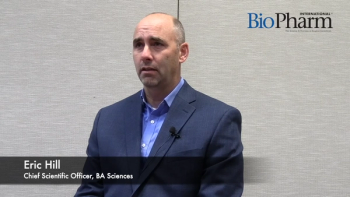
Eric Hill, Chief Scientific Officer, BA Sciences, discusses the how E&L testing principles can be adapted to biologic products and the unique challenges biologic drugs face regarding E&Ls.

Government and academic leaders say that to prevent catastrophic loss of expertise and investment, coordinated policy and significant investment in workforce talent are urgently needed in the UK.
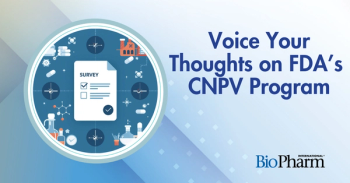
Help shape industry insights. Take our survey on the biopharma impacts of the FDA Commissioner’s National Priority Vouchers program.

This week’s biopharma news highlights formulation stability testing, automation in analytics, and achieving regulatory compliance.

Eric Hill, Chief Scientific Officer, BA Sciences, discusses the analytical challenges involved in conducting E&L testing for biologic drug products.

FDA’s newly introduced review route enables faster clearance of custom genetic and cell treatments, reshaping rare-disease development and manufacturing strategies.
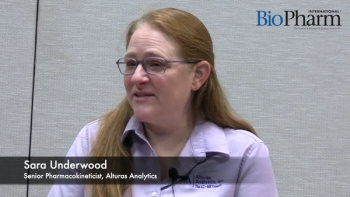
Reliable bioanalysis and regulatory-compliant study design enhance drug development, says Alturas’s Sara Underwood at AAPS PharmSci 360.

The agreement centers on a worldwide, exclusive license to develop and commercialize enzyme replacement therapies using the proprietary platform technology.

The company demonstrates advances in glioma hydrogel, high-concentration biologics, and nanoencorafenib licensing, impacting drug delivery strategies.

At AAPS PharmSci 360, Kelly Donovan says tailored analytical strategies are necessary for reducing development delay risks.

At AAPS PharmSci 360, Ely Porter, PhD, says automated platforms enhance drug production velocity and assay excellence.

At AAPS PharmSci 360 2025, Siddhant Sojitra, Alexion, defines an agitation model to reliably test stability for early-stage biologics.

Performance advantages are driving adoption of membrane chromatography for advanced therapy purification.

At AAPS PharmSci 360, Siddhant Sojitra defines a scientifically justified agitation model for the early-stage development of high-concentration biologics.

Financing strategies for new modalities and AI will be central at PharmSci 360, shaping how advanced therapeutics move toward global patient access.
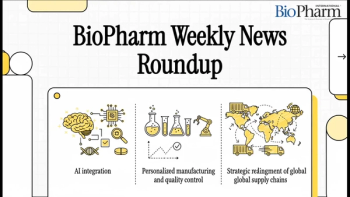
Novel biologics, from ADCs to in-vivo cell therapy, drive AI-enhanced quality control and supply chain flexibility in global biopharma innovation.

A new Cue Biopharma–ImmunoScape partnership seeks to advance targeted TCR-T expansion for solid tumors, supporting broader access and improved clinical durability.

In Episode 28, Miroslav Gasparek, Sensible; Lizzy Lawrence, STAT; and Joe Lewis, Deloitte, go behind the headlines.

AI, gene therapy, top research breakthroughs, and more will be highlighted at this year’s AAPS PharmSci 360, according to programming chair, Mei He.

As pharmaceutical tariffs reshape costs and global supply chains, it’s essential for industry professionals to be informed about their core impacts and underlying mechanisms.

Digital transformation, data integrity protocols, and regionalized supply chains are crucial strategies for optimizing drug development and manufacturing efficiency, as revealed in our exclusive interviews.

Shilpa Biologicals CEO Sridevi Khambhampaty addresses funding pressures, regional supply strategies, and expanding ADC development.

A wide-ranging discussion with RNAnalytics’ Viktoria Enkmann touched upon the technology and equipment necessary for modern nanoparticle analysis, as well as global concerns.

Biologics output improves via planning and automation as digitalization predicts batch outcomes, requiring strong data and worker expertise, KBI Biopharma’s Sigma Mostafa explains.

The second installment of the monthly BioPharma By the Numbers infographic series details the hiring and retention challenges faced by US biopharma.
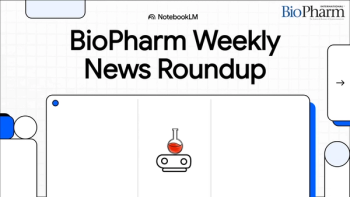
AI and innovative technology platforms are revolutionizing biopharma R&D and manufacturing, but success requires high data quality and next-gen solutions.

Codexis and Nitto Denko Avecia aim to advance next-gen siRNA production methods for improving scalability of RNA therapeutics.

In the conclusion of a two-part conversation, Viktoria Enkmann of RNAnalytics says she had a hard time understanding the United States’ mRNA decision in August 2025.

Digital platforms, automation, and new tech are driving efficiency, innovation, and advanced skill building in biomanufacturing, according to Sigma Mostafa of KBI Biopharma.